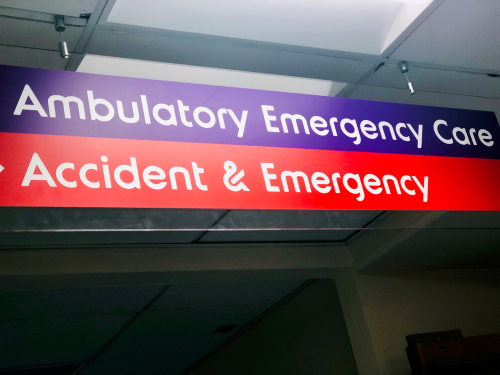
An ambulatory care center, which may be referred to as an outpatient care center, is a medical care facility that provides outpatient services. These include diagnosis, treatment, consultation and intervention services. Some ambulatory care centers offer specialized medical services and advanced medical technology that is equal to or higher than successful hospital chains.
The Types of Ambulatory Centers
There are actually different types of ambulatory care centers. First, there are urgent care clinics that provide lab, diagnostic, radiography and limited medical services for minor injuries. Most new urgent care clinics belong to for-profit companies and larger health care systems. Urgent care clinics are an excellent way to extend the health care systems’ marketing brand. Some hospital systems form collaborative partnerships with small urgent care clinics to expand services and network reach.
Traditional ambulatory care centers are usually emergency departments that are part of health care systems. They offer the full range standard medical services. This includes lab capabilities, imaging modalities and observation beds. Work-based clinics are usually hosted by large corporations, such as large manufacturing and production facilities. Primary care clinics are private, for-profit organizations ran by a number of licensed physicians. They are becoming more popular as entrepreneurial drive and spirit increase among new physicians and health care providers.
Ambulatory Care Nurses
Ambulatory care nurses provide a variety of professional nursing services to patients. They prioritize incoming patients, safely conduct technical procedures and effectively implement improvement programs. Ambulatory care nurses continually revise priorities for patient care activities based on the need level, resource availability, patient preference, departmental priorities and established timelines. They initiate action to correct, reduce or prevent medical risks by analyzing a patient’s physical or emotional health. They advocate for patients to achieve appropriate outcomes when necessary.
Ambulatory care nurses maintain accountability for their own decisions and delegated actions through proper documentation and evidence-based practices. They use scientific principles, medical logic, past successful tasks, experiential intuition, practice standards and organizational protocols to take action and make decisions. When necessary, they seek supervision or consultation to effectively and safely do the right things. They use internal and external resources to resolve and prevent patient problems. You can learn more about the duties of ambulatory nurses here.
Ambulatory Care Administrators
An ambulatory care administrator monitors and revises care plans based on incoming data and submitted research. They regularly establish and review departmental goals, outcomes and performances. When necessary, they execute independent medical interventions to achieve necessary medical goals. For example, they may be required to go against a parent’s religious wish to execute a medical procedure to save the life of a minor. They maintain accountability for achieving appropriate medical outcomes associated with delegated tasks.
Ambulatory care administrators follow state and federal laws to maintain the continuity of safe, quality and effective care for patients across the entire care continuum. They may adjust goals, deadlines and expectations according to patient safety, program efficiency and resource availability. They ensure that documentation is consistently completed within established guidelines, standards and regulations. They use interpersonal techniques and communication strategies with employees to achieve acceptable outcomes or responses.
An ambulatory care center provides critical medical services to incoming patients. They are an essential part of the national medical system.